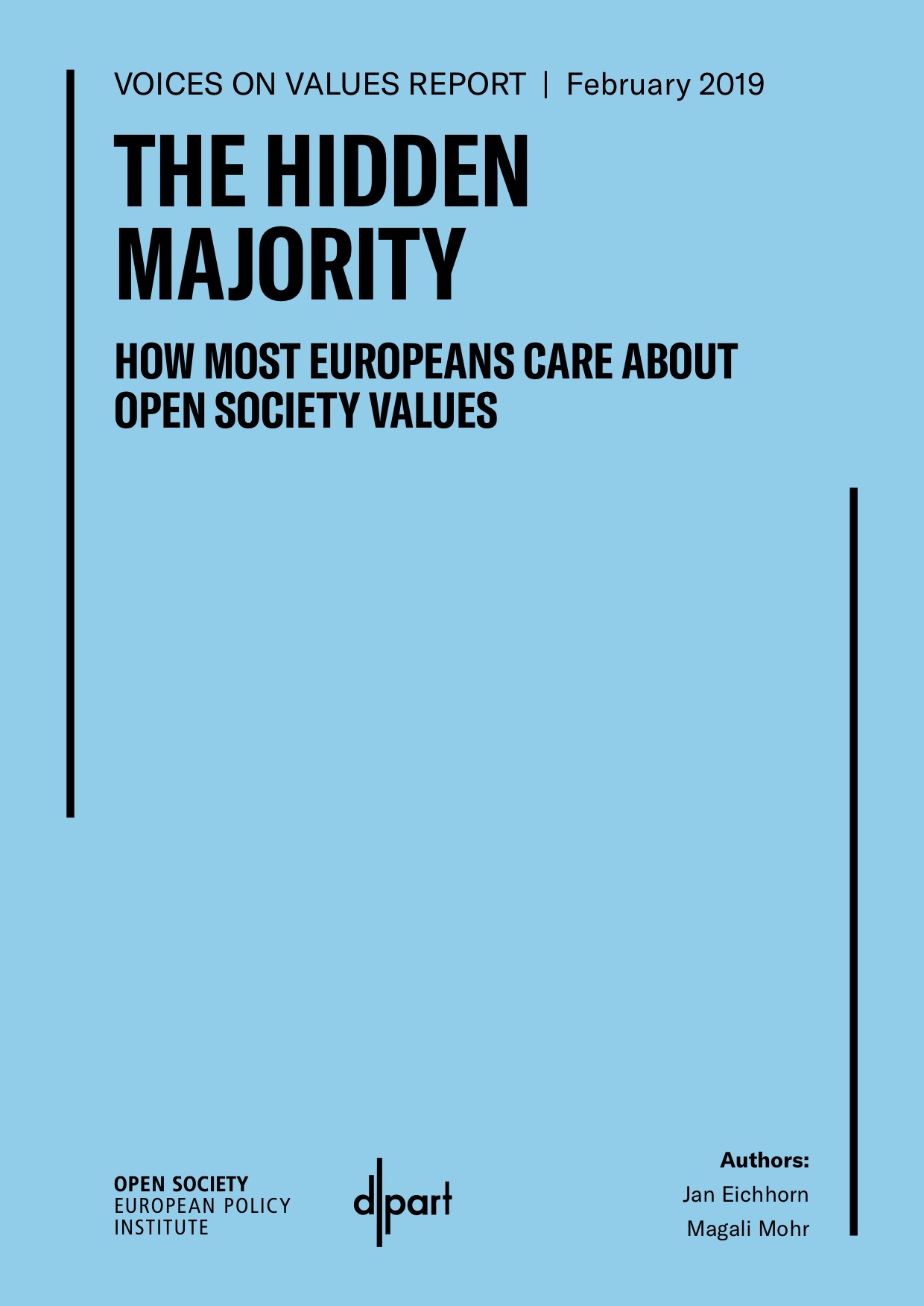Our Voices on Values research reveals that open society values have broader support among Europeans than often assumed. The data demonstrates that the common assumption that people are either for or against open society values is not true for the majority of Europeans.
Using robust analytical tools, the Voices on Values project conducted an empirical assessment of how Europeans rate open society values and other concerns that are increasingly portrayed as being in contradiction to those values. The researchers surveyed and interviewed more than 6,000 people across Germany, France, Hungary, Poland, Italy and Greece using an experimental design that tested both ranking of values, coherence between values sets and potential trade-offs against other concerns. The results reveal that open society values have broader support among Europeans than often assumed and that the common assumption that people are either for or against open society values is not true for the majority of Europeans.
Instead, many Europeans value both values associated with open societies — such as freedom of expression, freedom of religion and press freedom — and also characteristics commonly associated with more closed societies, such as ethnocentric citizenship models and a strong focus on the protection of national interests and values at the expense of minorities. By challenging common preconceptions about people’s values, our findings offer policy-makers and civil society a chance to engage with citizens more effectively.

